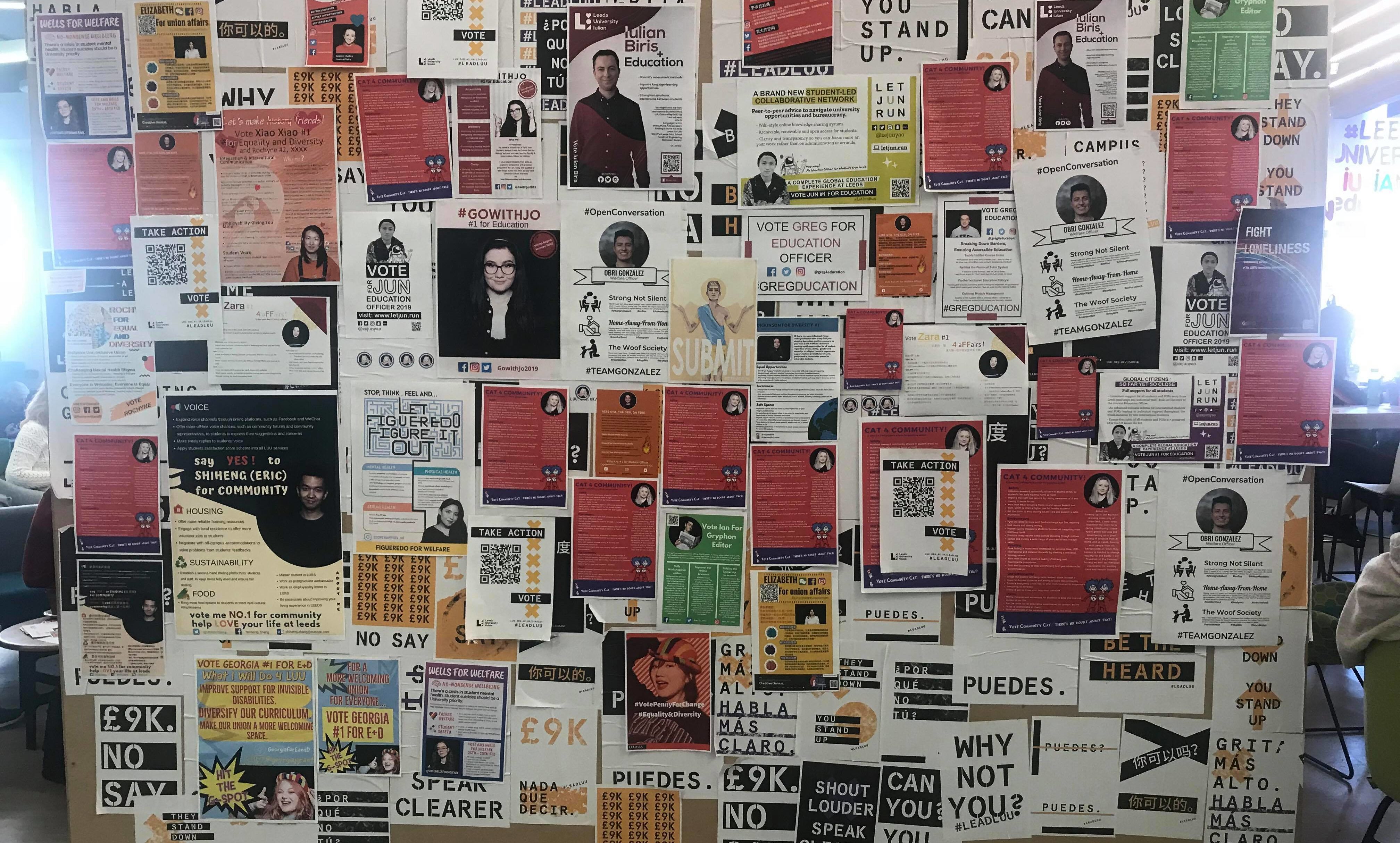It’s that time of the year again, where walls are plastered in brightly-coloured posters promising environmental concern and sustainability – the irony is truly real.
An average campaigner will print off around 200 A4 posters in during the leadership race, with many candidates holding the view that, the more posters you have around Uni, the more likely people are to remember your face and then vote for you in the election. Many candidates fall into the trap of making promises incompatible with their environmentally-friendly campaigns by printing hundreds of posters.
But then, as an LUU leadership race candidate, how else do you get yourself noticed?
Clearly, an online presence is very important. But visibility is key, and this often means reams and reams of paper posters. But there are other options. Chalk, cardboard, cereal boxes, paint and fabric banners are just some of the many examples of other viable campaigning platforms which have proved successful over the past years.
As part of my investigation, I spoke to George Bradley, who ran for Community Officer in 2014 and won the election in 2015. In the 2014 elections, the five community candidates committed to a paperless campaign, agreeing that thousands of posters littering campus were both ineffective and wasteful. They took this as an opportunity to challenge themselves to be more creative in their campaigns. Frankie O’Byrne, 2013’s Community Officer, reused leftover posters from his previous campaign, thus also keeping in the spirit of recycling.
When Bradley won the position, he took the idea of paperless campaigns to the Forum, where it passed as policy. This meant that for the next three years, all Community Officer campaigns had to use alternative, recycled materials. However, as of 2019 this policy has expired, so today’s Community Officers face no regulation on poster printing.
In 2015, candidates across all Exec roles committed to imposing a limit on paper, although it wasn’t an outright ban. This not only inspired and encouraged people to be more environmentally minded during their campaigns, but also helped to save the planet.
George agreed that it’s a shame this year’s candidates have not followed on with the paperless tradition, which was done in positive spirit and ensured everyone was less wasteful.
One of this year’s candidates, Evie Robinson, details in her manifesto that she wants to ban companies from leafleting on campus, whilst flooding the area with her own posters.
She also champions more emphasis on reducing food waste, as well as implementing a recycling rewards scheme.
Environmental sustainability is an important topic in our current climate, with the University of Leeds recently embarking on a Plastic Free by 2023 pledge, which Community Officers will no doubt be expected to help enforce.
Past candidates have mentioned that campaigning using recycled materials is a Community Officer tradition, which would seem in line with many of the candidates’ policies. Though this isn’t strictly a rule, it has remained tradition in past years at Leeds. Although this year’s Community Officer candidates don’t appear to have kept this up, we can only hope that the chosen candidate will be more environmentally-conscious once elected.
Chris Morris, Current Union Affairs Officer, stated:
“There is policy passed about limiting paper usage for candidate campaigns which LUU supports by providing recycled materials such as cardboard, cloth and fabric and old banners and delivering digital training materials for candidates. However, there is not a campaign rule around limiting paper usage although previous Community candidates have agreed amongst themselves to go paperless.”
Caitlin Tilley
Image: [Zahra Iqbal]

